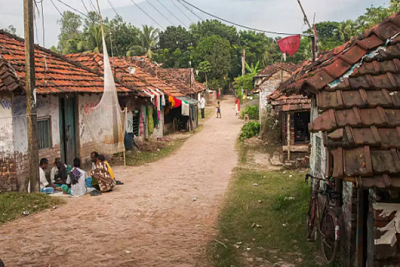New Delhi, (Asian independent) The results of the Household Consumption Expenditure Survey (HCES) for 2022-23 demonstrates that rural livelihoods have seen an improvement, especially for the lowest-income classes, as per an analysis by Emkay Global Financial Services.
The difference between rural and urban Monthly Per Capita Consumption Expenditure (MPCE) as a percentage of rural MPCE, declined to 71 per cent in 2022-23 from 84 per cent in 2011-12 and more than 90 per cent in 2004-05. This is even more prominent when looking at spending as per the fractile pyramid. The same ratio drops to just 46 per cent for the bottom five per cent of the pyramid and stays under 50 per cent for the bottom 20 per cent.
“Thus, the poorest rural households have been able to spend at a much closer level to their urban counterparts, and this implies that the government’s policy initiatives for enhancing rural incomes have worked to an extent,” the report said.
On the other hand, a difference of over 85 per cent for the highest 10 per cent of households implies rising income inequality at the top of the pyramid.
The results of the HCES for 2022-23 show that rural households have experienced improvement at a higher rate than urban ones since the last survey (2011-12).
The difference between rural and urban MPCE has narrowed substantially over the years, implying successful government policies for improving rural incomes, while this is even more pronounced at the lower levels of the pyramid.
Conversely, the gap is bigger at the top, reflecting an increase in inequality at higher income levels. Encouragingly, the share of food expenditure is lower across sections, while spending on proteins has improved, with rural even higher than urban, the report added.
A time-series analysis shows that the share of food in MPCE has been declining for both urban and rural households, reflecting shifting preferences as incomes rise. It also indicates more aspirational behaviour, with the share of fruits, milk, consumer services, durable goods and entertainment rising as well, again for both urban and rural households, the report said.
It is also encouraging that the share of proteins (milk, pulses, meat, fish and eggs) in total spending on food has risen across both sections. Rural households are spending more on proteins than urban households as a share of their food expenses. Both urban and rural households have been able to spend more of their food budgets on better nutrition, despite spending less on food overall, which is extremely important given India remains a protein-deficient country.









